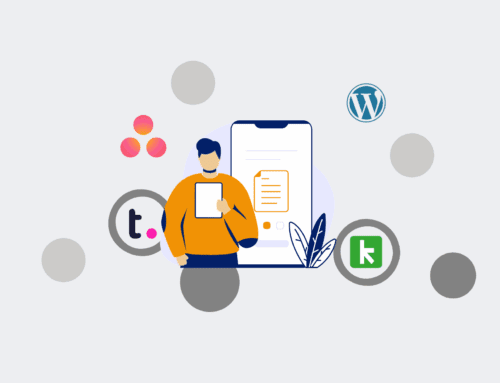Building a Business Case for AI in Recruiting: What Executives Need to Hear
In today’s fast-evolving talent landscape, the conversation around Artificial Intelligence in recruiting has shifted from speculative innovation to an undeniable strategic imperative. Yet, for many executives, the proposed investment in AI tools can feel abstract, a complex technical overhead rather than a clear path to enhanced profitability and operational efficiency. At 4Spot Consulting, we understand that senior leaders don’t just want to hear about technology; they need a compelling business case rooted in tangible ROI, reduced risk, and scalable growth.
The traditional recruiting playbook, riddled with manual processes, human biases, and time-consuming administrative tasks, is no longer sustainable. It’s not merely about finding candidates; it’s about finding the *right* candidates, faster and more economically, while simultaneously improving the candidate experience and ensuring compliance. This is where AI moves beyond buzzword status and into a critical business solution. Executives need to recognize that AI isn’t just a cost center; it’s a productivity multiplier and a competitive differentiator.
Beyond Efficiency: The Strategic Value Proposition of AI
When presenting AI in recruiting to the C-suite, the dialogue must pivot from feature sets to core business objectives. We’re talking about reducing the notorious “time-to-hire,” which directly impacts productivity and revenue. We’re discussing the elimination of human error in candidate screening, ensuring a more consistent and fair process. And crucially, we’re addressing the ability to scale talent acquisition efforts without proportionally scaling costs – a critical factor for high-growth companies aiming for $5M+ ARR.
Consider the impact of automating the initial stages of the recruiting funnel. AI-powered tools can parse thousands of resumes in minutes, identifying not just keywords but also correlating skills, experience, and cultural fit markers with far greater accuracy and speed than human eyes. This isn’t about replacing recruiters; it’s about empowering them to focus on high-value activities: building relationships, conducting insightful interviews, and making strategic hiring decisions. The executive benefits are clear: a more robust talent pipeline, reduced recruitment costs, and a significant improvement in the quality of hire, leading to lower turnover and higher employee performance.
The ROI Equation: Quantifying AI’s Impact
To truly resonate with executives, the business case for AI must be built on quantifiable metrics. It’s about demonstrating how AI directly contributes to the bottom line. For instance, by automating resume intake and parsing, a process that can consume hundreds of hours annually, companies can reclaim valuable recruiter time. We’ve seen scenarios, like helping an HR tech client save over 150 hours per month by automating their resume intake and parsing process using Make.com and AI enrichment, then syncing to Keap CRM. This isn’t theoretical; it’s a tangible reduction in operational overhead.
Furthermore, AI can drastically improve candidate engagement through personalized communication at scale, reducing candidate drop-off rates and enhancing the employer brand. Predictive analytics can even identify which candidates are most likely to succeed in a role, significantly impacting long-term retention. These aren’t just incremental gains; they represent a fundamental shift in how talent acquisition functions, moving it from a reactive cost center to a proactive strategic driver.
Addressing Executive Concerns: Cost, Implementation, and Data Security
Executives will inevitably raise questions about the cost of implementation, the complexity of integration, and the security of sensitive candidate data. This is where a strategic partner like 4Spot Consulting becomes invaluable. Our approach, anchored by the OpsMesh™ framework, ensures that AI integration isn’t a haphazard addition but a carefully planned augmentation of existing systems. We specialize in connecting disparate SaaS systems, like Make.com, Keap, and Unipile, to create a single source of truth, eliminating data silos and streamlining workflows.
The conversation needs to emphasize that modern AI platforms are often low-code, designed for integration, and scalable. The investment isn’t in bespoke, costly software development, but in intelligent tools that quickly yield returns. For data security, highlighting robust compliance features and data anonymization capabilities built into leading AI platforms is crucial. It’s about mitigating risk while maximizing opportunity.
The Future-Proofing Advantage
Ultimately, building a business case for AI in recruiting is about future-proofing the organization. In an increasingly competitive global market, companies that fail to embrace intelligent automation risk falling behind. AI allows organizations to be agile, responsive, and data-driven in their talent strategies, attracting top talent while optimizing resources. It allows for a more equitable and objective hiring process, reducing bias and enhancing diversity – a significant win for both corporate values and business performance.
The message for executives is clear: AI in recruiting is no longer a luxury, but a necessity. It’s an investment that delivers a powerful ROI through reduced costs, improved efficiency, higher quality hires, and enhanced strategic agility. The businesses that lead with AI will not only save 25% of their day but will redefine their entire talent acquisition landscape, positioning themselves for sustainable success.
If you would like to read more, we recommend this article: The Strategic Imperative of AI in Modern HR and Recruiting: Navigating the Future of Talent Acquisition and Management







